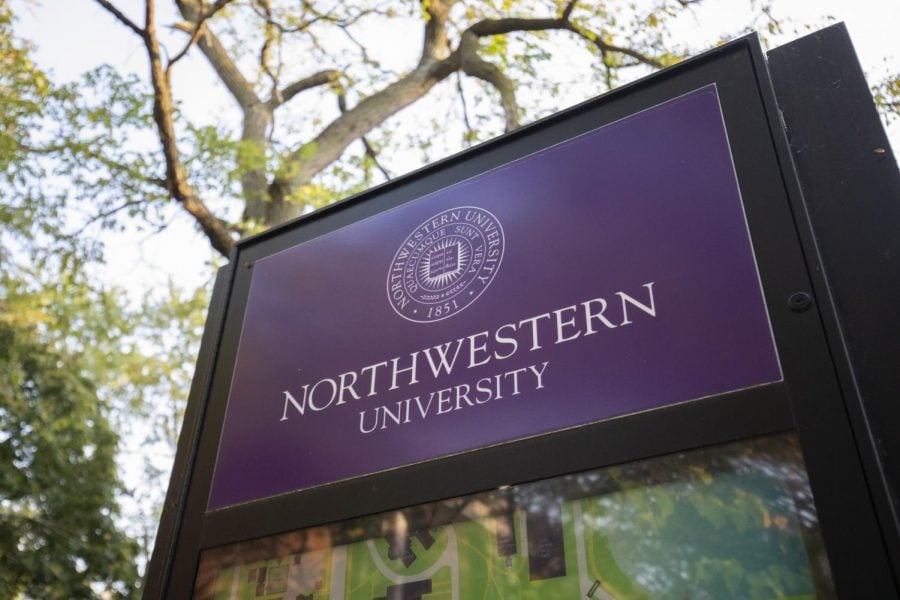The Faculty Senate is the elected body of Northwestern faculty, representing members from the Evanston, Chicago and Qatar campuses. The Senate consists of 94 members, including faculty from each department, individuals from the University Libraries and the Northwestern Emeriti Organization.
NU faculty has shared governance of the University with the Board of Trustees and administration through the Faculty Senate.
“Shared governance means that we have more input into some decisions than into others,” Faculty Senate president and McCormick Prof. Jill Wilson said. “Certainly on academic things, we have a lot of say, and that say in shared governance comes about in a lot of ways, not just through the Faculty Senate because faculty have committees on hiring and on curriculum.”
The Senate’s executive committee includes Senate leadership and chairs of the 11 standing committees. Leadership consists of Wilson, President-elect and political science Prof. Ian Hurd and former president and chemistry Prof. Regan Thomson.
The executive committee is responsible for setting the agenda for the Senate’s monthly meetings, with chairs of standing committees bringing concerns raised within their respective committees to set that agenda.
The executive committee also has a summit with NU administration every quarter, where it meets with President Michael Schill, Provost Kathleen Hagerty and other administrative officials to discuss some specific examples.
“That’s a way we can share with them what’s going on in the Senate, and they can report to us about things we were interested in knowing about,” Thomson said.
Every member of the Faculty Senate is required to join at least one of the following faculty standing committees, each focusing on topics relevant to faculty and the broader University community.
Budget and Planning Committee
The committee works with the administration to ensure planning processes for the University align with faculty interests and values. Kellogg Prof. Michael Fishman is the chair.
Educational Affairs Committee
The committee recommends practices for the organization of academics, teaching and research at the University. Medill Prof. Jacqueline Babb is the chair.
Faculty Handbook Committee
The committee works on changes to the faculty handbook. Anne Zald, Government Information Librarian at University Libraries, is the chair.
Faculty Rights and Responsibilities Committee
The committee deals with academic freedom policies, teaching and research, interpersonal conduct and terms of appointment, promotion and tenure. Philosophy Prof. Mark Alznauer is the chair.
Governance Committee
The committee is responsible for proposing changes to the Faculty Senate bylaws. Medill Prof. Ceci Rodgers is the chair.
Non-Tenure Eligible Committee
The committee is concerned with issues relating to faculty not eligible for tenure. Communication Prof. Catherine Fabian is the chair.
Research Affairs Committee
The committee deals with faculty research activities. Feinberg Prof. Swati Kulkarni is the chair.
Salary and Benefits Committee
The committee is responsible for issues related to salaries and benefits, such as healthcare and childcare. McCormick Prof. Ian Horswill is the chair.
Secure Faculty Survey Committee
The committee works with the Provost and President’s offices on the Secure Faculty Survey. SESP Prof. Danny M. Cohen is the chair.
Social Responsibility Committee
The committee analyzes University policies for adherence to fairness, decency and other community values. Weinberg Prof. Rebecca Zorach is the chair.
Student Affairs Committee
The committee works with student government associations on issues involving student-faculty interaction and evaluates policies regarding undergraduate and graduate students. Feinberg Prof. Ana Maria Acosta is the chair.
Each committee meets at least once a quarter, with some meeting more frequently. Committee chairs are appointed by the Senate president and formally voted on at the first Senate meeting of the year.
The only committee that requires members to be elected is the Committee on Cause, which reviews faculty appeals regarding disciplinary processes.
“(The faculty standing committees’) ability to function is largely dependent on the people who are in it and the organizational ability and energy of the chairperson,” Thomson said. “With everything that’s going on in our campus and issues that faculty have, our Faculty Rights and Responsibilities Committee is pretty busy.”
The Faculty Senate sends representatives to certain university standing committees to ensure a faculty point of view. For instance, the Learning and Technology Advisory Committee, a governance body that advises the Provost and Northwestern Information Technology, includes a faculty appointee.
Special committees called “ad hoc committees” are occasionally formed to deal with topics that fall outside of existing standing committees or require dedication to necessitate appointing a separate committee.
“We deliberate on actions, discuss things of concern,” Wilson said.
Email: avantikasingh2028@u.northwestern.edu
Related Stories:
— Faculty Senate expresses concerns about University investigation into Steven Thrasher
— Q&A: New Faculty Senate President talks plans for upcoming year
— After informal launch meeting, Faculty Senate prepares to tackle old and new issues







